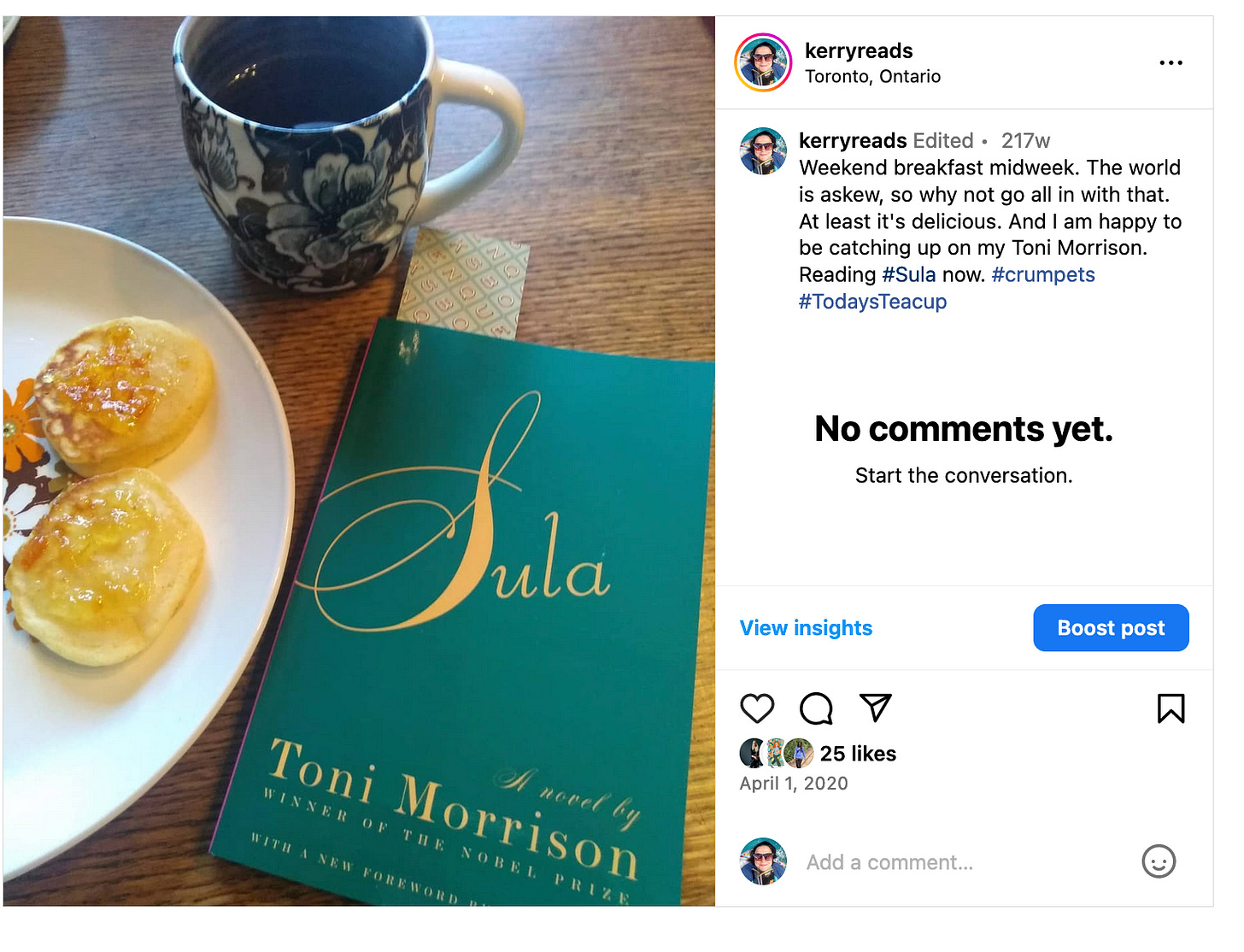Something With Good and Evil
Revisiting Toni Morrison's SULA
I was already thinking of Mrs. Dalloway as I prepared to pick up Toni Morrison’s Sula for the second time, mostly because these were both novels I’d read the first time—a quarter-century apart—under false and facile impressions of what their stories were about. Which, in the case of Mrs. Dalloway, was not entirely my fault, since I’d seen it listed among “Cool Lit Picks” (or something) in a mid-‘90s teen magazine that was likely YM or Seventeen (because I wasn’t edgy enough for Sassy) where Virginia Woolf’s 1925 modernist masterpiece was described along the lines of, “About a woman getting ready for a party.” And so naturally, when I read it, the entire book went over my head, and I was mostly just confused.
I could attempt excuses for misapprehending Sula too—it was April 2020, for starters, during that desperate time when using the internet to conjure magical items like donuts and books to my doorstep was the only thing that kept me going. When my mental faculties were otherwise engaged with navigating a crisis that had shut down the world, and I didn’t need anything more that was vaguely a challenge. I’d picked Sula off a list of books in stock at a local indie bookstore, because this was so early in the pandemic that they hadn’t created a proper online shop yet. Published in 1973, this was Morrison’s second novel, and I skimmed the description imagining it would be like something I had read before, a story of two best friends growing up in a small Ohio town.
If you’ve read Sula, by now you’re probably laughing, or at least rolling your eyes. And if you haven’t, but are familiar with Morrison’s work, you’ll still know how far off base I was. And my own unfamiliarity with Morrison’s work at this point is something that I—ludicrously, with two English degrees, who considers myself well-read—make no excuses for. In 2020, I’d only recently read my first Toni Morrison novel, Beloved, although even within that narrow context—Sula is a straightforward novel about friendship as much as Beloved is a straightforward novel about motherhood—I should have been able to discern that nothing of Morrison’s treatment of women and friendship would be straightforward in the slightest.
Keep reading with a 7-day free trial
Subscribe to Pickle Me This to keep reading this post and get 7 days of free access to the full post archives.



